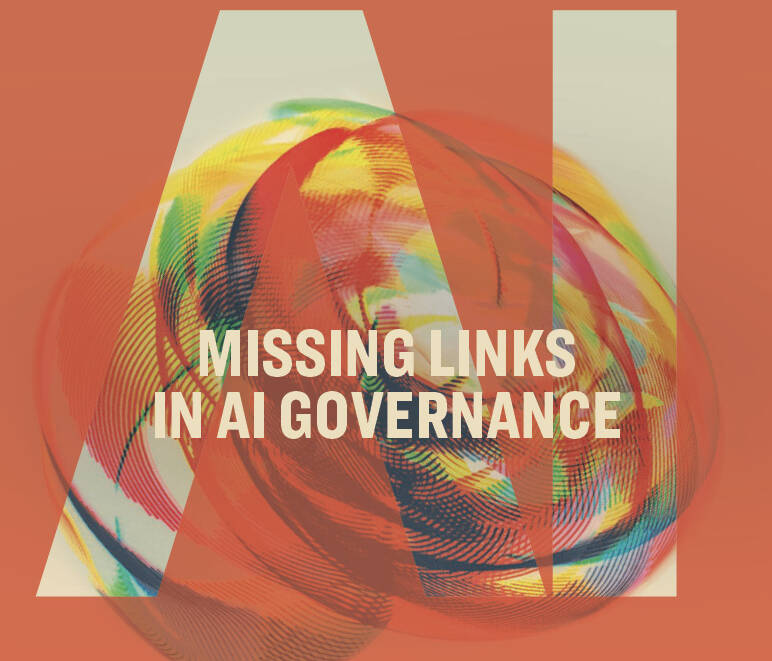
ΑΙhub.org
Missing links in AI governance – a new book release

Mila – Quebec Artificial Intelligence Institute and the United Nations Educational, Scientific and Cultural Organization (UNESCO) have joined forces on a book entitled Missing links in AI governance. Focussed on the need for better governance of AI, the book comprises 18 chapters written by academics, civil society representatives, innovators and policy makers.
The book explores themes such as the influence of AI on indigenous and LGBTI communities, the necessary inclusion of all countries in global governance, and the use of AI to support innovation for socially beneficial purposes. It maps out possible solutions to foster an AI development that is ethical, inclusive, and respectful of human rights.
The authors also warn against the use of AI in potentially harmful contexts like autonomous weapons or the manipulation of digital content for social destabilization, deplore the increasing centralization of decision-making power in the development of AI systems and biases embedded in them, and the lack of transparency and accountability in the industry.
To celebrate the book launch, Mila hosted a discussion between two of the contributors: Yoshua Bengio and Kate Crawford. You can watch the recorded conversation, which was preceded by speeches from representatives of UNESCO and the Quebec government, here.
The chapters of the book are as follows:
- Change from the outside: towards credible third-party audits of AI systems, Inioluwa Deborah Raji, Sasha Costanza-Chock, Dr Joy Buolamwini
- The AI industry through the lens of ethics and fairness, Golnoosh Farnadi, Amanda Leal De Lima Alves, Rebecca Salganikm
- The attention skew in AI development: threats and corrective measures, Adji Bousso Dieng
- Big AI can centralize decision-making and power, and that’s a problem, Erik Brynjolfsson, Andrew Ng
- Resolving dilemmas in responsible artificial intelligence development: a missing link during the pandemic, Nathalie Voarino, Catherine Régis
- Data: from The Atlas of AI, Kate Crawford
- Innovation ecosystems for socially beneficial AI, Yoshua Bengio, Allison Cohen, Benjamin Prud’homme, Amanda Leal De Lima Alves, Noah Oder
- A manifesto concerning artificial intelligence for monitoring sustainable development: the missing link between SDGs, investment and trust, John Shawe-Taylor, Daniel Miodovnik, Davor Orlic
- AI for the SDGs – and beyond? Towards a human AI culture for development and democracy, Emmanuel Letouzé, Nuria Oliver, Bruno Lepri, Patrick Vinck
- The Westminster parliament’s impact on UK AI strategy, Lord Clement-Jones
- Artifical intelligence and indigenous rights, Valmaine Toki, Andelka M, Phillips
- Headlights, not rear-view mirrors: seeing, recognizing, considering and writing LGBTI people into artificial intelligence’s lifecycle, Jed Horner
- Inclusive innovation in artificial intelligence: from fragmentation to wholeness, Éliane Ubalijoro, Guylaine Poisson, Nahla Curran, Kyungim Baek, Nilufar Sabet-Kassouf, Mélisande Teng
- Paradoxes of participation in inclusive AI governance: four key approaches from global south and civil society discourse, Marie-Therese Png
- Democratize the development of AI policies, Stefan Riezebos, Tim Gelissen, Raashi Saxena
- Ownership and management of learning behaviour information for AI in education, Shitanshu Mishra, Dan Shefet, Anantha Kumar Duraiappah
- Autonomous weapons and deepfakes: the risks of the ongoing weaponization of AI and the urgent need for regulation, Branka Marijan, Wanda Muñoz
- Ethics of care and artificial intelligence: the need to integrate a feminist normative approach, Pauline Noiseau
You can read the book and download it in full here. There is also a version in French.










